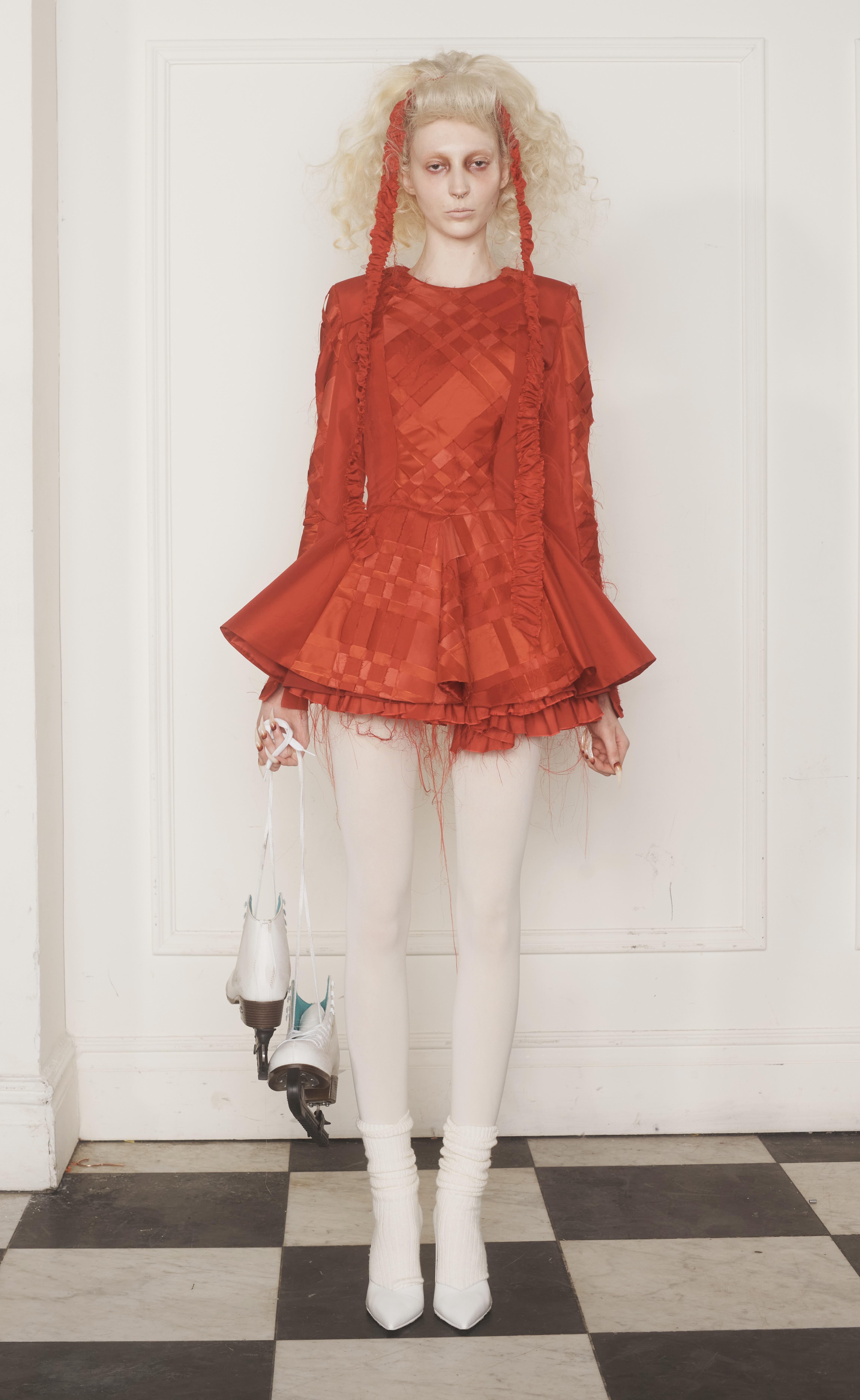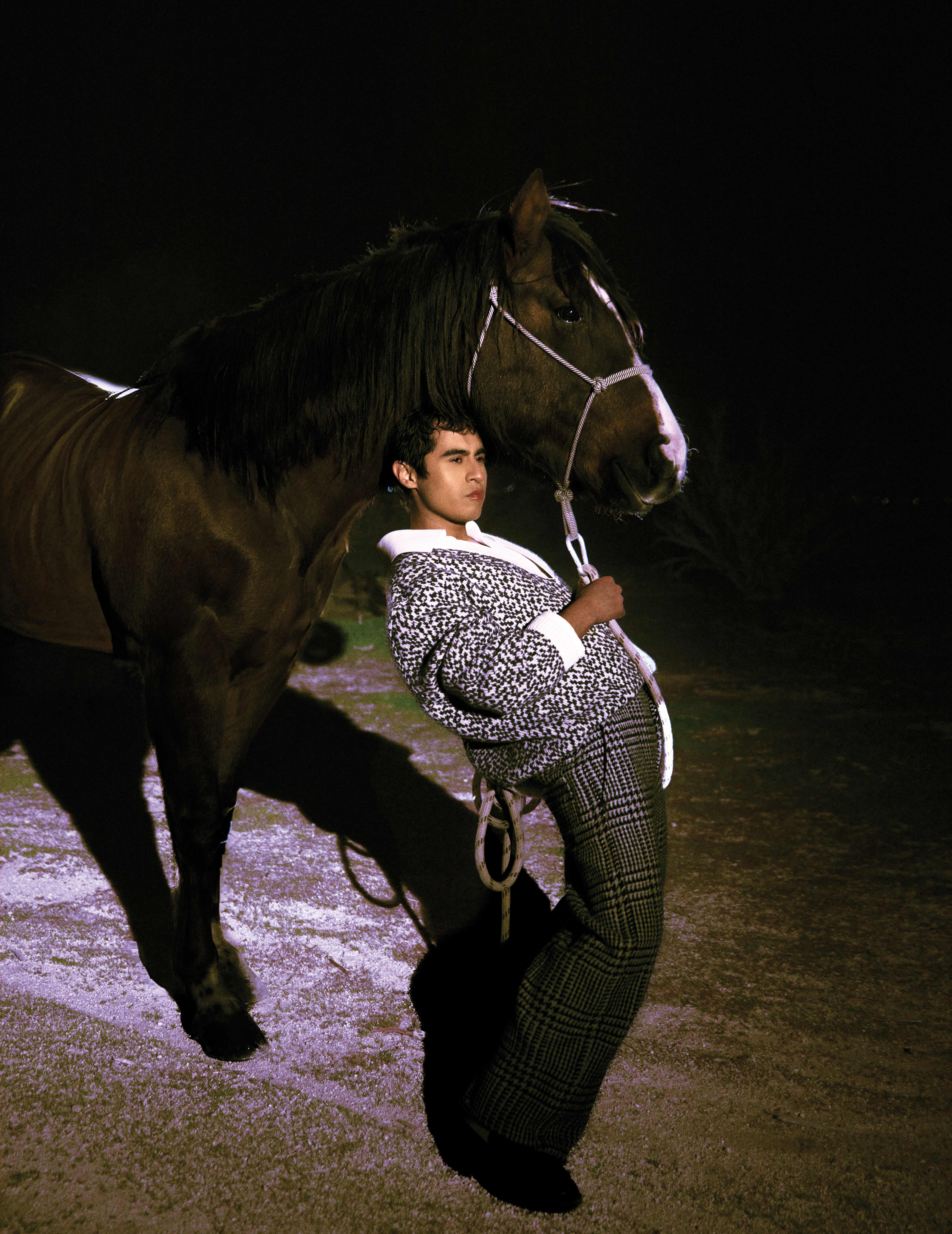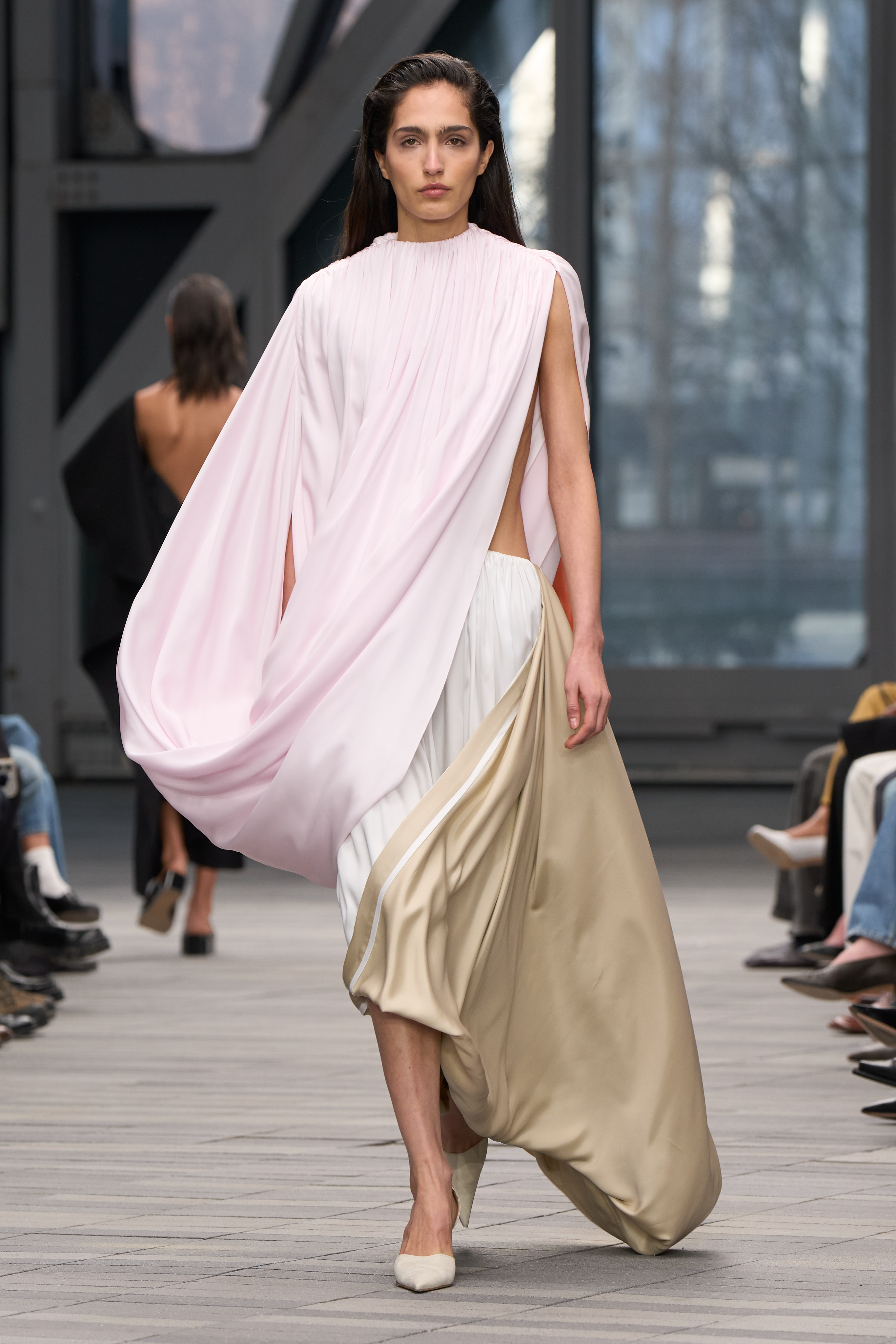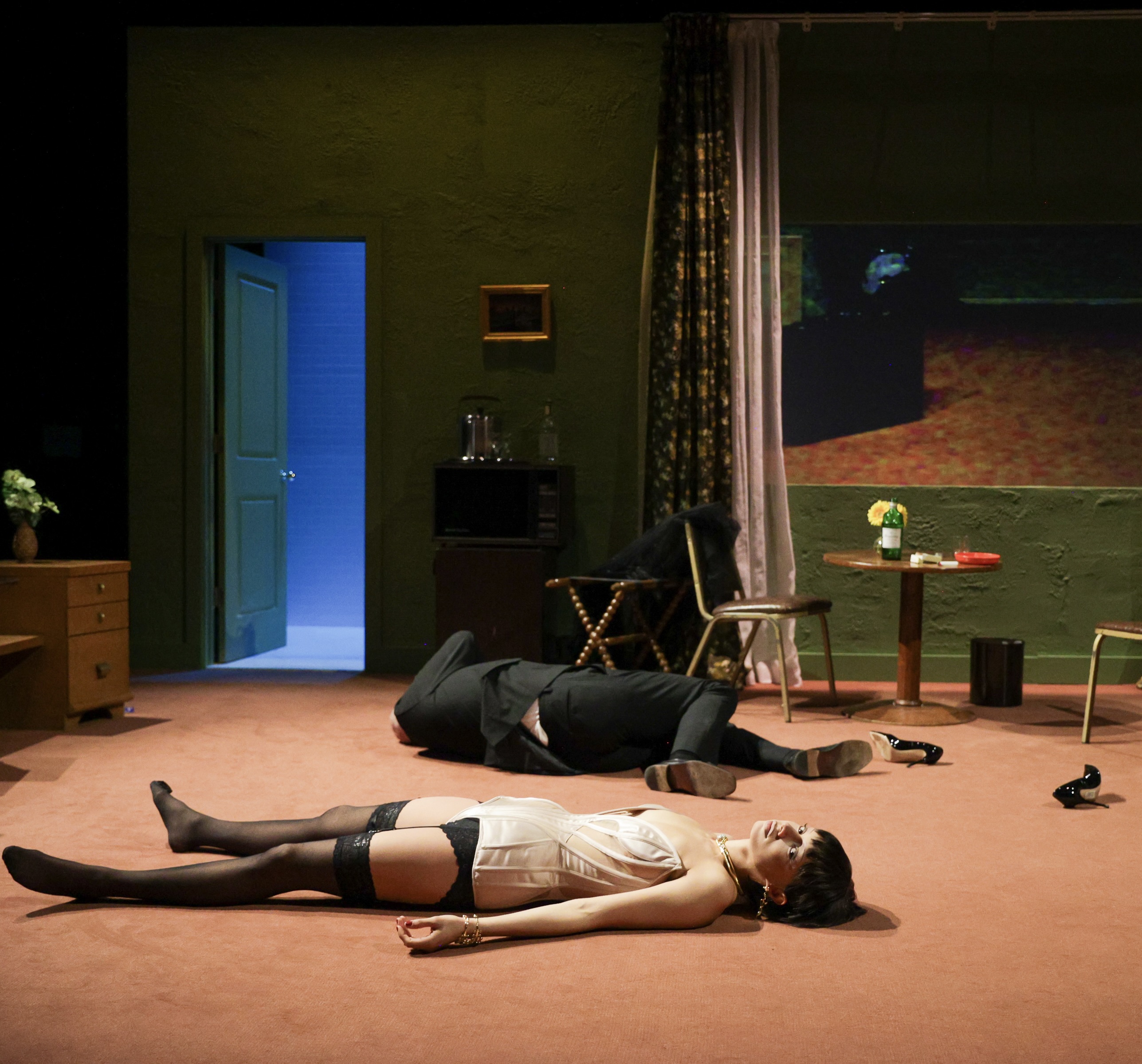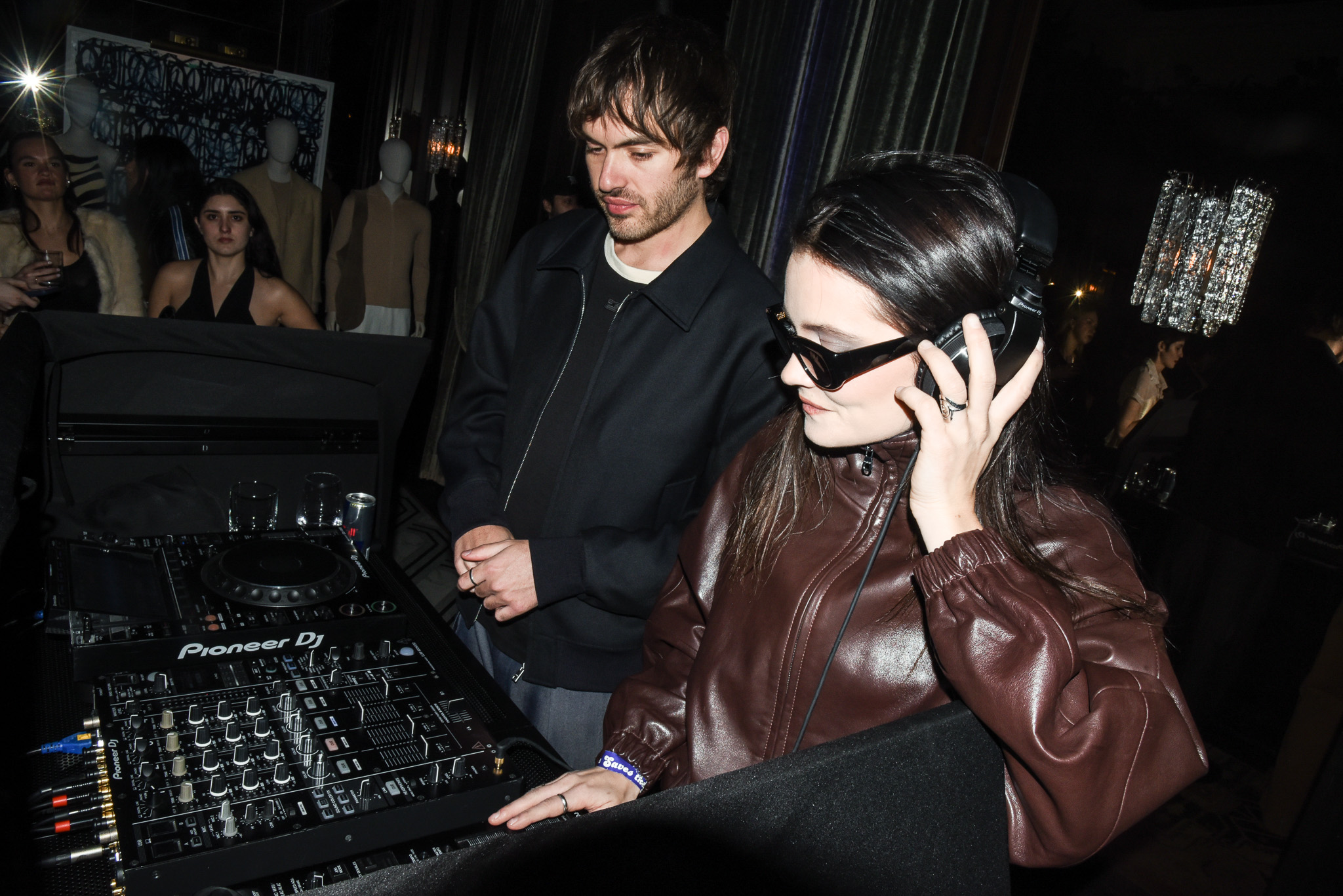

Does the whole East and West thing still exist? Not East and West as in New York and Los Angeles, but, for example, East and West as in Western Rock and Roll and Eastern Zen. Well, in America, Asian profundities like Yoga and certain cuisine are here to stay. Meanwhile in Asia, the feeling and thirst for American and European modernism is—and has been—exceedingly intriguing and sought after.
Maybe the pot is melting even further. Globalization through technology is usurping ideas of borders, even if they are created by vast seas. Yesterday, I got off the phone with my Mother in Switzerland. How did that just happen? Through this square silver thing, invisible lines of communication. Yes, satellites. Waves of energy. Science. But, _how?_ The mind shudders at what the landscape of humanity will be ten years from now. 100 years? Forget it.
Currently, I am on the phone with Ying Yan, who is in Beijing, China—even farther than Switzerland, the mind blow evolves. Accompanied on the phone call is Liang Zhao. The two of them are key creators of the Chinese-American content company DA Culture International—Ying being the founder, Liang the creative executive. ‘DA’ is short for ‘blessing’ in classical eastern language.
And what are they blessing us with?
“We have three different kinds of content right now,” says Ying, “we are choosing primarily a female audience in China (but applicable to males, too), who’s age range is 16-24 years old. The first part of our content is five minutes long, more comical and sillier but with a message. Second is 15 minutes long and more drama based. The third kind is up to 90 minutes long and suitable for video games, with very big and worldly settings.”
The said content is mainly produced and conceptualized in Los Angeles, with a creative team led by Liang and a cohort of female designers, directors, and writers, many of whom are graduates of USC and UCLA. After Liang and her team decide what the content will be, they converse with Ying and they proceed from there. They act like a kind of artistic hive mind across the ocean. They are a serious bunch, with strange visions of cartoon and live-action fare.
Currently, DA Culture is focusing on stories that promote positive discussions regarding sex, gender, relationships and social and cultural obligations in China. The show is called Spice
Strawberry, cute and funny, but layered with contemporary messaging, “feminism is in a really great moment. For us to launch this new show and give people online a virtual space to talk about it is special. The great thing about showing content online is that it’s not one directional, but people can comment and chat about the topics,” Liang says.
The current show DA Culture has up is available on Bilibili.com, which is a kind of Youtube for younger people in China. Bilibili has many of the same trappings as Youtube—bright colors, videos varying from how to make spaghetti to make-up tutorials, and, as Liang mentioned, an explosion of consumer activity within the comments, a land of digitized communication that vibrates with energy. It all makes one feel like China and The United States have never been so close when it comes to technology.
That being said, China can be a challenging place to be for an artist. How does one delicately balance ancient social roles and moral codes, meanwhile pushing the boundaries of culture in a healthy way? It seems almost impossible these days, regardless of the location of the artist, to not have some political narrative underneath the work, whether it was intended or not.


Ying isn’t exactly so enamored by the push for a political identity within the company, “Every time we talk about contemporary China it’s so easy to relate it to communist China or make it a political issue,” he laments, “but as an artist we also want to be treated individually. At DA we are talking about humans and what triggers us, and we want to give the audience the same ability to discover themselves and not mix with political topics. But keep in mind, in China we are still in the process of being a modern country. Citizens have to understand individuality but also work together to modernize the country. The feminist topic is, of course, brought up through the organic needs of this group of people who want to be themselves and show their ability and power in social situations, but the feminist topic is complicated. In the ‘West’ they have finished modernizing, in a way. In China we haven’t. Western culture is a more post-modern culture, I feel. China isn’t really there yet.”
Essentially, it feels like a boon for a company like DA to be splitting time creating and producing in China and America, adapting the best of both worlds. Ying and Liang went on to tell me how certain social challenges are more prevalent in China than others.
For instance, the topic of feminism has grown and evolved for decades, moving with the flow of Asian culture and the economy. When the economy in China changed to what it is today—a giant of resource and reach and power—so did the subject of feminism.
I asked how America and China might compare in terms of a feminist movement, Ying said they seem to be the same, whereas Liang went in a different direction, “I remember growing up and we didn’t get enough sex education. We learned the biological knowledge, but not about gender and how men and women are different and how to understand your orientation and body in daily life. As for our work, the combination of live action and animation in our current show on Billibilli allows us to combine a lot of aspects together and use them as metaphors to what we want to talk about. Before we understand something we have to talk about it first, and in China, these are things that people seem to be longing to talk about. At DA we are making social commentary, but the story comes first, we don’t want to be so on the nose.”
Liang expands further, “Different countries have different cultural backgrounds and ideas about how to be a woman, in family and in work. I feel that the Chinese woman is facing different complications psychologically and emotionally, especially those in big cities. Particularly because of seemingly outdated yet spiritually valuable rituals. It’s not easy to say no to values, even if we don’t agree with it. Like in commercials when we see the encouragement of women to get married at the right time and age, but your body and mind are going somewhere else!”
Let’s not drift too far into the ouroboros of madness that is the political charade. After all, the tag line for DA Culture is ‘Create, In Fantasy”. This is a company that understands the responsibility of telling powerful stories, but also enjoying themselves in the process.
One of their future projects is a series of short and long format narrative episodes similar to that of Black Mirror, something that has yet to land in China. The show harkens to Aldous Huxley and will be called Brave New World. With this venture DA is going to create unprecedented Science Fiction tales for the Eastern populace, “I am interested in Sci Fi stories taking place in the near future,” Liang says, “How can we make people rethink the lives they are living now? We feel like what we create can help generations born after the year 2000 discover themselves in a fun and exciting way.”
Like any intelligent and fresh company, time is of the essence, but how fast or slow is the real question. Gathering a community of people interested in what you have to say can come at a snail’s pace, and Ying is aware of that, “We want to give various groups of people the opportunity to express themselves through art and cinema and animation,” he then pauses, thinking, or maybe the phone has cut out, our invisible thread of magic has fallen into the ocean, wait, no, there he is, his voice breaking back in, “for this journey we have to be very patient. In China you have to do things one step at a time, we can’t put it all on the table immediately.”
 
Does the whole East and West thing still exist? Not East and West as in New York and Los Angeles, but, for example, East and West as in Western Rock and Roll and Eastern Zen. Well, in America, Asian profundities like Yoga and certain cuisine are here to stay. Meanwhile in Asia, the feeling and thirst for American and European modernism is—and has been—exceedingly intriguing and sought after.
Maybe the pot is melting even further. Globalization through technology is usurping ideas of borders, even if they are created by vast seas. Yesterday, I got off the phone with my Mother in Switzerland. How did that just happen? Through this square silver thing, invisible lines of communication. Yes, satellites. Waves of energy. Science. But, _how?_ The mind shudders at what the landscape of humanity will be ten years from now. 100 years? Forget it.
Currently, I am on the phone with Ying Yan, who is in Beijing, China—even farther than Switzerland, the mind blow evolves. Accompanied on the phone call is Liang Zhao. The two of them are key creators of the Chinese-American content company DA Culture International—Ying being the founder, Liang the creative executive. ‘DA’ is short for ‘blessing’ in classical eastern language.
And what are they blessing us with?
“We have three different kinds of content right now,” says Ying, “we are choosing primarily a female audience in China (but applicable to males, too), who’s age range is 16-24 years old. The first part of our content is five minutes long, more comical and sillier but with a message. Second is 15 minutes long and more drama based. The third kind is up to 90 minutes long and suitable for video games, with very big and worldly settings.”
The said content is mainly produced and conceptualized in Los Angeles, with a creative team led by Liang and a cohort of female designers, directors, and writers, many of whom are graduates of USC and UCLA. After Liang and her team decide what the content will be, they converse with Ying and they proceed from there. They act like a kind of artistic hive mind across the ocean. They are a serious bunch, with strange visions of cartoon and live-action fare.
Currently, DA Culture is focusing on stories that promote positive discussions regarding sex, gender, relationships and social and cultural obligations in China. The show is called Spice
Strawberry, cute and funny, but layered with contemporary messaging, “feminism is in a really great moment. For us to launch this new show and give people online a virtual space to talk about it is special. The great thing about showing content online is that it’s not one directional, but people can comment and chat about the topics,” Liang says.
The current show DA Culture has up is available on Bilibili.com, which is a kind of Youtube for younger people in China. Bilibili has many of the same trappings as Youtube—bright colors, videos varying from how to make spaghetti to make-up tutorials, and, as Liang mentioned, an explosion of consumer activity within the comments, a land of digitized communication that vibrates with energy. It all makes one feel like China and The United States have never been so close when it comes to technology.
That being said, China can be a challenging place to be for an artist. How does one delicately balance ancient social roles and moral codes, meanwhile pushing the boundaries of culture in a healthy way? It seems almost impossible these days, regardless of the location of the artist, to not have some political narrative underneath the work, whether it was intended or not.

Does the whole East and West thing still exist? Not East and West as in New York and Los Angeles, but, for example, East and West as in Western Rock and Roll and Eastern Zen. Well, in America, Asian profundities like Yoga and certain cuisine are here to stay. Meanwhile in Asia, the feeling and thirst for American and European modernism is—and has been—exceedingly intriguing and sought after.
Maybe the pot is melting even further. Globalization through technology is usurping ideas of borders, even if they are created by vast seas. Yesterday, I got off the phone with my Mother in Switzerland. How did that just happen? Through this square silver thing, invisible lines of communication. Yes, satellites. Waves of energy. Science. But, _how?_ The mind shudders at what the landscape of humanity will be ten years from now. 100 years? Forget it.
Currently, I am on the phone with Ying Yan, who is in Beijing, China—even farther than Switzerland, the mind blow evolves. Accompanied on the phone call is Liang Zhao. The two of them are key creators of the Chinese-American content company DA Culture International—Ying being the founder, Liang the creative executive. ‘DA’ is short for ‘blessing’ in classical eastern language.
And what are they blessing us with?
“We have three different kinds of content right now,” says Ying, “we are choosing primarily a female audience in China (but applicable to males, too), who’s age range is 16-24 years old. The first part of our content is five minutes long, more comical and sillier but with a message. Second is 15 minutes long and more drama based. The third kind is up to 90 minutes long and suitable for video games, with very big and worldly settings.”
The said content is mainly produced and conceptualized in Los Angeles, with a creative team led by Liang and a cohort of female designers, directors, and writers, many of whom are graduates of USC and UCLA. After Liang and her team decide what the content will be, they converse with Ying and they proceed from there. They act like a kind of artistic hive mind across the ocean. They are a serious bunch, with strange visions of cartoon and live-action fare.
Currently, DA Culture is focusing on stories that promote positive discussions regarding sex, gender, relationships and social and cultural obligations in China. The show is called Spice
Strawberry, cute and funny, but layered with contemporary messaging, “feminism is in a really great moment. For us to launch this new show and give people online a virtual space to talk about it is special. The great thing about showing content online is that it’s not one directional, but people can comment and chat about the topics,” Liang says.
The current show DA Culture has up is available on Bilibili.com, which is a kind of Youtube for younger people in China. Bilibili has many of the same trappings as Youtube—bright colors, videos varying from how to make spaghetti to make-up tutorials, and, as Liang mentioned, an explosion of consumer activity within the comments, a land of digitized communication that vibrates with energy. It all makes one feel like China and The United States have never been so close when it comes to technology.
That being said, China can be a challenging place to be for an artist. How does one delicately balance ancient social roles and moral codes, meanwhile pushing the boundaries of culture in a healthy way? It seems almost impossible these days, regardless of the location of the artist, to not have some political narrative underneath the work, whether it was intended or not.
 
Ying isn’t exactly so enamored by the push for a political identity within the company, “Every time we talk about contemporary China it’s so easy to relate it to communist China or make it a political issue,” he laments, “but as an artist we also want to be treated individually. At DA we are talking about humans and what triggers us, and we want to give the audience the same ability to discover themselves and not mix with political topics. But keep in mind, in China we are still in the process of being a modern country. Citizens have to understand individuality but also work together to modernize the country. The feminist topic is, of course, brought up through the organic needs of this group of people who want to be themselves and show their ability and power in social situations, but the feminist topic is complicated. In the ‘West’ they have finished modernizing, in a way. In China we haven’t. Western culture is a more post-modern culture, I feel. China isn’t really there yet.”
Essentially, it feels like a boon for a company like DA to be splitting time creating and producing in China and America, adapting the best of both worlds. Ying and Liang went on to tell me how certain social challenges are more prevalent in China than others.
For instance, the topic of feminism has grown and evolved for decades, moving with the flow of Asian culture and the economy. When the economy in China changed to what it is today—a giant of resource and reach and power—so did the subject of feminism.
I asked how America and China might compare in terms of a feminist movement, Ying said they seem to be the same, whereas Liang went in a different direction, “I remember growing up and we didn’t get enough sex education. We learned the biological knowledge, but not about gender and how men and women are different and how to understand your orientation and body in daily life. As for our work, the combination of live action and animation in our current show on Billibilli allows us to combine a lot of aspects together and use them as metaphors to what we want to talk about. Before we understand something we have to talk about it first, and in China, these are things that people seem to be longing to talk about. At DA we are making social commentary, but the story comes first, we don’t want to be so on the nose.”
Liang expands further, “Different countries have different cultural backgrounds and ideas about how to be a woman, in family and in work. I feel that the Chinese woman is facing different complications psychologically and emotionally, especially those in big cities. Particularly because of seemingly outdated yet spiritually valuable rituals. It’s not easy to say no to values, even if we don’t agree with it. Like in commercials when we see the encouragement of women to get married at the right time and age, but your body and mind are going somewhere else!”
Let’s not drift too far into the ouroboros of madness that is the political charade. After all, the tag line for DA Culture is ‘Create, In Fantasy”. This is a company that understands the responsibility of telling powerful stories, but also enjoying themselves in the process.
One of their future projects is a series of short and long format narrative episodes similar to that of Black Mirror, something that has yet to land in China. The show harkens to Aldous Huxley and will be called Brave New World. With this venture DA is going to create unprecedented Science Fiction tales for the Eastern populace, “I am interested in Sci Fi stories taking place in the near future,” Liang says, “How can we make people rethink the lives they are living now? We feel like what we create can help generations born after the year 2000 discover themselves in a fun and exciting way.”
Like any intelligent and fresh company, time is of the essence, but how fast or slow is the real question. Gathering a community of people interested in what you have to say can come at a snail’s pace, and Ying is aware of that, “We want to give various groups of people the opportunity to express themselves through art and cinema and animation,” he then pauses, thinking, or maybe the phone has cut out, our invisible thread of magic has fallen into the ocean, wait, no, there he is, his voice breaking back in, “for this journey we have to be very patient. In China you have to do things one step at a time, we can’t put it all on the table immediately.”

Ying isn’t exactly so enamored by the push for a political identity within the company, “Every time we talk about contemporary China it’s so easy to relate it to communist China or make it a political issue,” he laments, “but as an artist we also want to be treated individually. At DA we are talking about humans and what triggers us, and we want to give the audience the same ability to discover themselves and not mix with political topics. But keep in mind, in China we are still in the process of being a modern country. Citizens have to understand individuality but also work together to modernize the country. The feminist topic is, of course, brought up through the organic needs of this group of people who want to be themselves and show their ability and power in social situations, but the feminist topic is complicated. In the ‘West’ they have finished modernizing, in a way. In China we haven’t. Western culture is a more post-modern culture, I feel. China isn’t really there yet.”
Essentially, it feels like a boon for a company like DA to be splitting time creating and producing in China and America, adapting the best of both worlds. Ying and Liang went on to tell me how certain social challenges are more prevalent in China than others.
For instance, the topic of feminism has grown and evolved for decades, moving with the flow of Asian culture and the economy. When the economy in China changed to what it is today—a giant of resource and reach and power—so did the subject of feminism.
I asked how America and China might compare in terms of a feminist movement, Ying said they seem to be the same, whereas Liang went in a different direction, “I remember growing up and we didn’t get enough sex education. We learned the biological knowledge, but not about gender and how men and women are different and how to understand your orientation and body in daily life. As for our work, the combination of live action and animation in our current show on Billibilli allows us to combine a lot of aspects together and use them as metaphors to what we want to talk about. Before we understand something we have to talk about it first, and in China, these are things that people seem to be longing to talk about. At DA we are making social commentary, but the story comes first, we don’t want to be so on the nose.”
Liang expands further, “Different countries have different cultural backgrounds and ideas about how to be a woman, in family and in work. I feel that the Chinese woman is facing different complications psychologically and emotionally, especially those in big cities. Particularly because of seemingly outdated yet spiritually valuable rituals. It’s not easy to say no to values, even if we don’t agree with it. Like in commercials when we see the encouragement of women to get married at the right time and age, but your body and mind are going somewhere else!”
Let’s not drift too far into the ouroboros of madness that is the political charade. After all, the tag line for DA Culture is ‘Create, In Fantasy”. This is a company that understands the responsibility of telling powerful stories, but also enjoying themselves in the process.
One of their future projects is a series of short and long format narrative episodes similar to that of Black Mirror, something that has yet to land in China. The show harkens to Aldous Huxley and will be called Brave New World. With this venture DA is going to create unprecedented Science Fiction tales for the Eastern populace, “I am interested in Sci Fi stories taking place in the near future,” Liang says, “How can we make people rethink the lives they are living now? We feel like what we create can help generations born after the year 2000 discover themselves in a fun and exciting way.”
Like any intelligent and fresh company, time is of the essence, but how fast or slow is the real question. Gathering a community of people interested in what you have to say can come at a snail’s pace, and Ying is aware of that, “We want to give various groups of people the opportunity to express themselves through art and cinema and animation,” he then pauses, thinking, or maybe the phone has cut out, our invisible thread of magic has fallen into the ocean, wait, no, there he is, his voice breaking back in, “for this journey we have to be very patient. In China you have to do things one step at a time, we can’t put it all on the table immediately.”



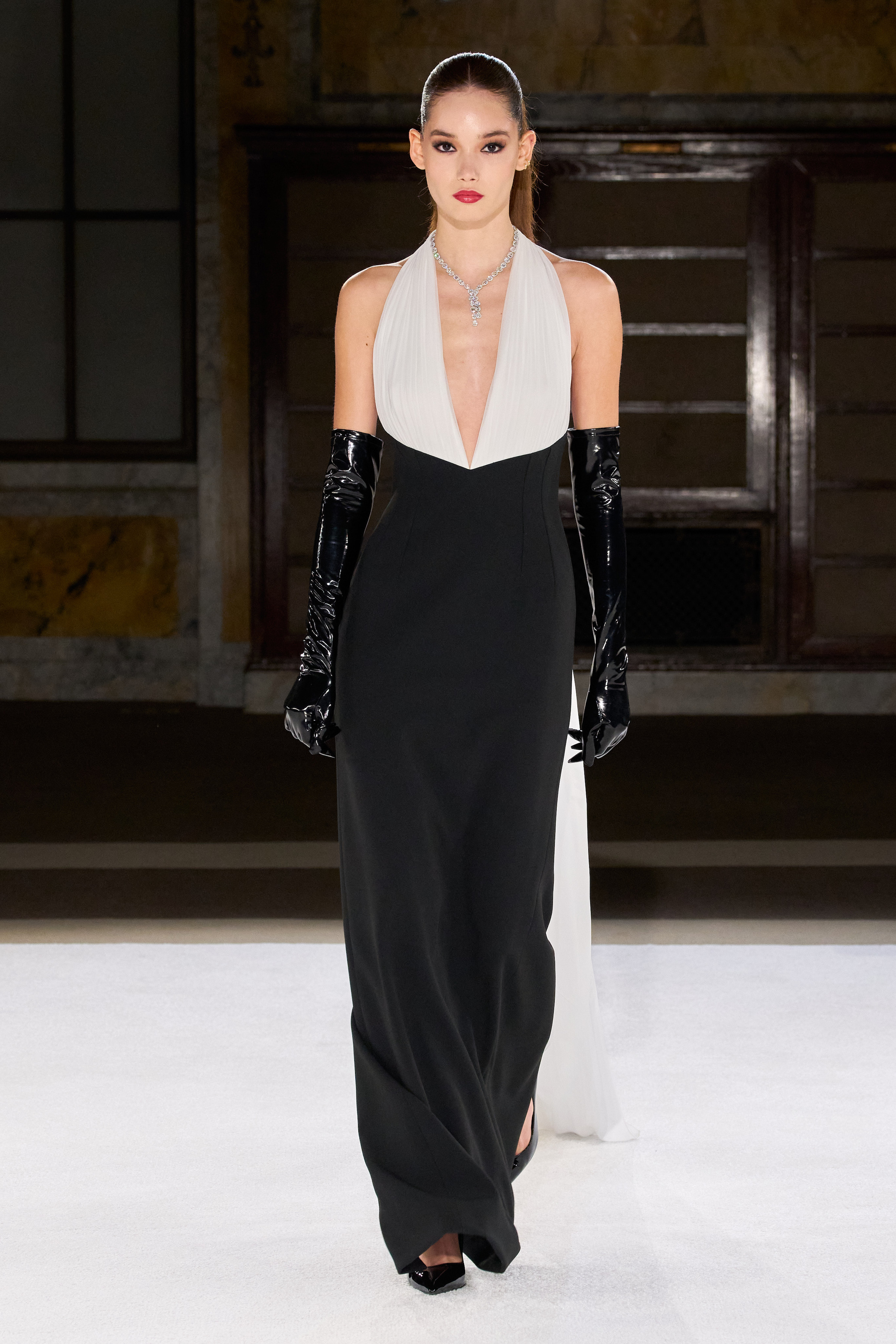

.jpg)
